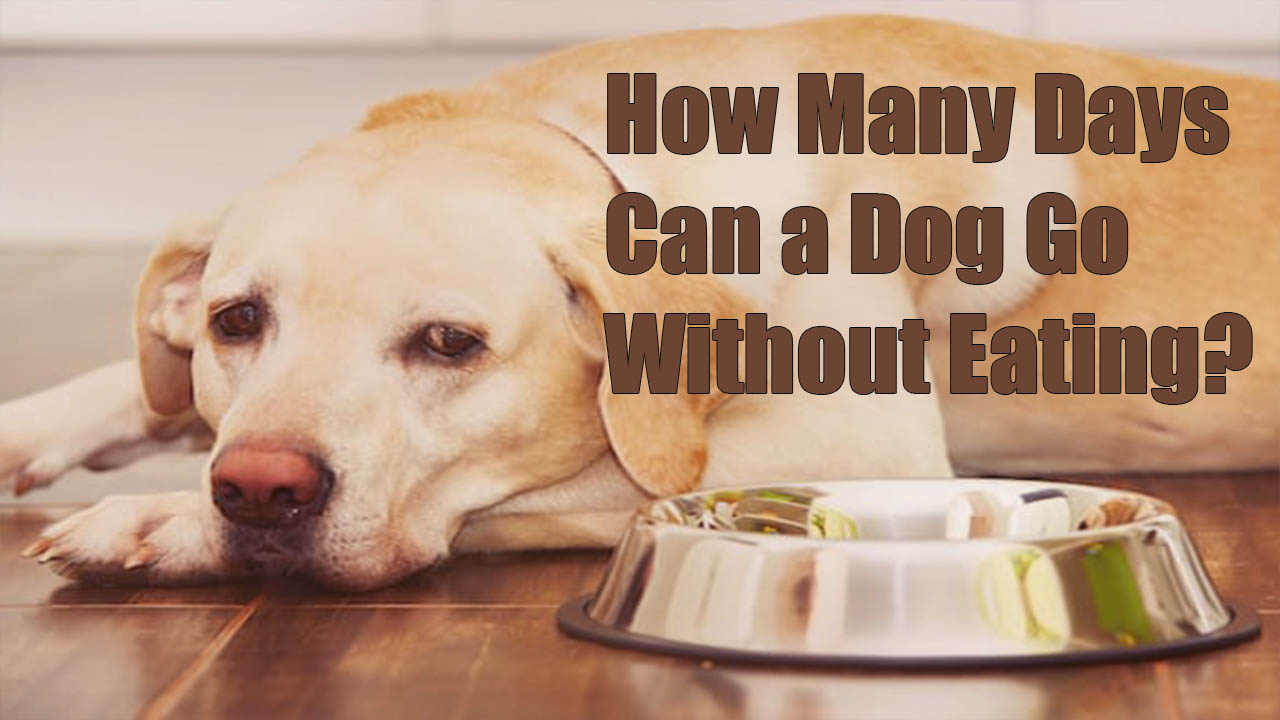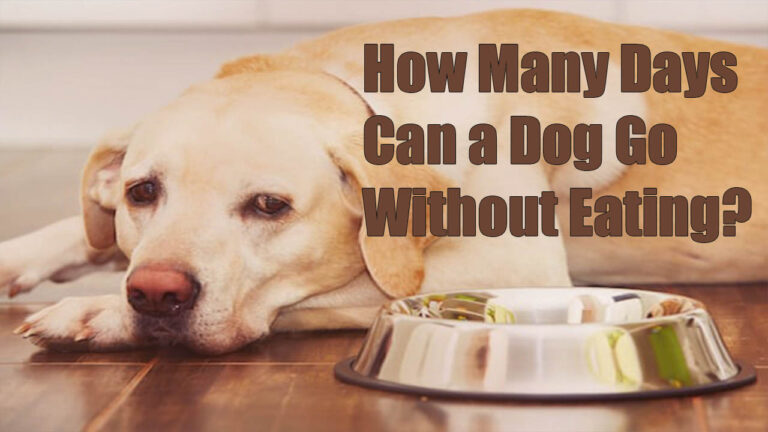While most dogs will typically eat whenever they’re hungry, there may be times when your pet doesn’t have access to food or isn’t feeling well enough to eat. In general, most healthy adult dogs can go anywhere from 3 to 5 days without food and still be OK. However, if your dog hasn’t eaten in 3 days, it’s time to check in with your vet to make sure everything is OK.

How long can a dog go without eating before it becomes a cause for concern?
The answer to this question depends on several factors, including your dog’s age, breed, and overall health. For example, puppies generally need to eat more often than adult dogs because they’re still growing and developing. Additionally, some breeds of dogs are more prone to developing gastrointestinal issues if they don’t eat regularly. If you’re ever worried that your dog hasn’t eaten in a while, it’s always best to consult with your veterinarian. They can help you determine if there’s cause for concern and offer guidance on how to best care for your pet.
Why don’t dogs eat properly?
There are several reasons why your dog may not be eating properly. If you’ve noticed that your pet isn’t eating as much as usual, it’s important to take note of any other changes in their behavior or appearance. Additionally, there may be some underlying health issue that’s causing your dog to lose its appetite. Some common causes of decreased appetite in dogs include:
-Dental disease
-Infections
-Kidney disease
-Liver disease
-Cancer
If you’re concerned that your dog isn’t eating properly, be sure to contact your veterinarian right away. They can help identify any potential health issues and offer treatment options.
Dental Disease
One of the most common reasons for decreased appetite in dogs is dental disease. Dental disease can cause your dog to experience pain and discomfort when eating, which may lead to them avoiding food altogether. If you suspect that your dog’s decrease in appetite is due to dental disease, it’s important to take them to the vet right away.
Infections
Another common cause of decreased appetite in dogs is infections. If your dog is suffering from an infection, it may not feel well enough to eat. Additionally, some infections can cause inflammation and pain, which can make eating difficult or uncomfortable. If you think that your dog’s decrease in appetite may be due to an infection, it’s important to take them to the vet right away.
Kidney Disease
Kidney disease is another common health issue that can cause decreased appetite in dogs. Kidney disease can make it difficult for your dog to process and absorb nutrients, which may lead to them feeling less hungry. Additionally, kidney disease can cause nausea and vomiting, which can also decrease appetite. If you think that your dog’s decrease in appetite may be due to kidney disease, it’s important to take them to the vet right away.
Liver Disease
Liver disease is another health condition that can cause decreased appetite in dogs. Liver disease can make it difficult for your dog to process and absorb nutrients, which may lead to them feeling less hungry. Additionally, liver disease can cause nausea and vomiting, which can also decrease appetite. If you think that your dog’s decrease in appetite may be due to liver disease, it’s important to take them to the vet right away.
Cancer
Cancer is another health condition that can cause decreased appetite in dogs. Cancer can cause inflammation and pain, which can make eating difficult or uncomfortable. Additionally, some types of cancer can spread to the gastrointestinal tract, which can also decrease appetite. If you think that your dog’s decrease in appetite may be due to cancer, it’s important to take them to the vet right away.
What are some tips for feeding a dog with a decreased appetite?
If you’re concerned that your dog isn’t eating properly, there are some things that you can do to help them. Here are some tips for feeding a dog with a decreased appetite:
-Offer small meals more frequently throughout the day instead of one large meal.
-Try different types of food to find one that they’ll be more likely to eat.
-Add some wet food or canned food to their diet to make it more appealing.
-Add some warm water, broth, or gravy to their food to make it more enticing.
-Give them smaller pieces of food that are easier to chew and swallow.
-Talk to your vet about appetite stimulants or supplements that may help.
If you’re concerned about your dog’s decreased appetite, be sure to talk to your vet. They can help identify any potential health issues and offer treatment options.
In Conclusion
A decrease in appetite is a common issue in dogs and can be caused by a variety of different health conditions. If you’re concerned that your dog isn’t eating properly, it’s important to talk to your vet. They can help identify any potential health issues and offer treatment options. Additionally, there are some things that you can do to make food more appealing to a dog with a decreased appetite. By following these tips, you can help ensure that your dog is getting the nutrition they need.



